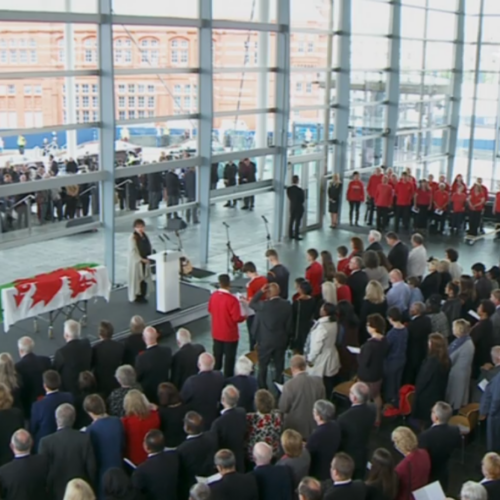

He was the people’s First Minister, and this is a people’s ceremony. He wouldn’t want heavy mourning. This is a celebration of his life through words, poetry and music.
These were amongst the words of Lorraine Barrett, humanist celebrant, at the funeral of her friend, Rhodri Morgan, former First Minister of Wales. Rhodri had been a lifelong humanist and a patron of Humanists UK. His funeral was the first of its kind to be held in Britain, establishing a precedent. Never before had a public funeral – akin to a state funeral – been led by a humanist.
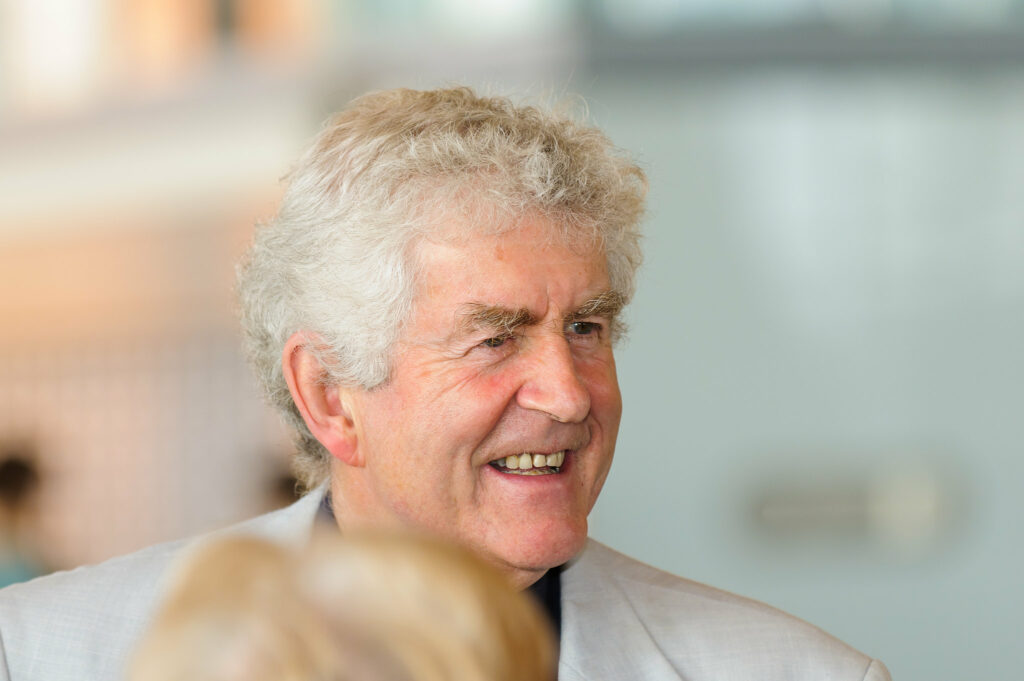
Rhodri Morgan had been an immensely popular First Minister, credited by many as the ‘father of Welsh devolution.’ He was born in Cardiff in 1939 and educated at the Universities of Oxford and Harvard, pursuing a career in the civil service before being elected Labour MP for Cardiff West in 1987. Having stepped down from the House of Commons, in 2000 he became leader of Welsh Labour and First Minister of Wales, serving three terms until his retirement at the age of seventy in 2009. According to his Guardian obituarist, Rhodri was
invariably known by his first name and popular with the voters. One reason for this was his presence. A tall man, strongly built, with a cartoonist’s dream of untameable Brillo pad hair, he was energetic, combative, funny and unstoppably loquacious.
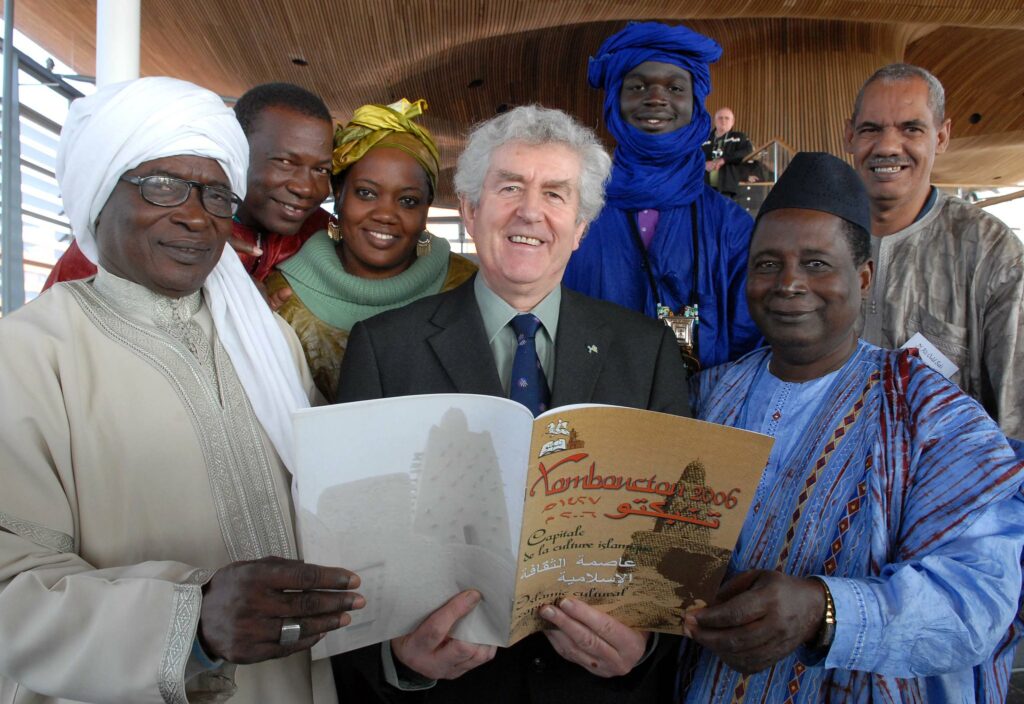
Morgan’s humanism informed his politics. He strove to instil in Welsh civic life an ethic of tolerating and respecting difference. Under his leadership, Wales was encouraged to think of itself as one community, celebrating difference but united by a common humanity. He gave enthusiastic support to Humanists UK, was a fixture of the Parliamentary Humanist Group and following his retirement focused more explicitly on humanist concerns, notably addressing the 2015 Welsh Labour Conference on the subject of ‘working for a more equal, ethical and secular government.’
Rhodri died on 17 May 2017. The question of where his funeral might be held was at first a source of difficulty. It was clear that it would be a large-scale event of interest to many in Wales and further afield. Yet, as Lorraine Barrett remembered, while Llandaff Cathedral had been suggested to Rhodri’s widow, Julie Morgan, because of his previous role as First Minister, it was ‘inconceivable that the funeral could be held in a church.’ Julie asked Lorraine whether she thought the Senedd (Welsh Parliament) could be used, and staff at the Senedd were quickly contacted and were keen to do everything they could to accommodate the funeral. The size of the event became apparent once the Morgan family had created a list of family, close friends and Labour Party members, Assembly Members, Members of Parliament, Trade Unions, faith leaders, and more. They were determined that it should be a ‘people’s funeral’ which could either be attended by the public or watched by them by means of a live broadcast. Furthermore, a massive security operation would be needed as it was apparent that many hundreds of people would want to be in or near the Senedd. Lorraine remembered how, in the days before the funeral:
We set out chairs to see how many we could accommodate. Luckily, the front of the Senedd building is made of glass with wide terraces going down towards the bay, so we could accommodate many hundreds of people outside. Of course, this meant that a sound system with screens had to be installed, and we also worked alongside media outlets who wanted to cover the funeral. It was a huge logistical operation but of course, at the heart of all this was a grieving family and I was preparing for the biggest funeral of my life.
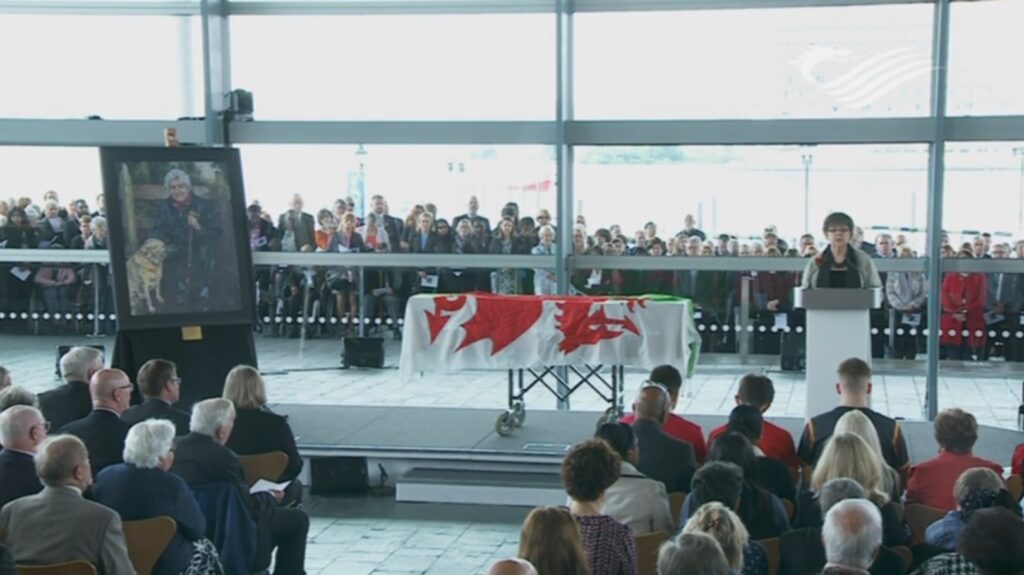
Lorraine Barrett spent many hours with Julie Morgan and her family, talking through their wishes for the funeral, working out a ‘running order’, and deciding upon speakers. Ultimately, the ceremony was to last for nearly two and a half hours with family memories, poetry, music, and tributes from political colleagues, friends, and the world of sport. Lorraine thought ‘the most poignant moment was when Dave Burns of the Hennessys sang ‘Joe Hill’, which has been an anthem for the Labour Party and Trade Union movement for many decades. It was just Dave and his guitar. You could hear a pin drop.’ The ceremony concluded with a rendition of the Welsh national anthem and mass applause as Rhodri’s coffin left the Senedd. Perhaps the final words should be taken from Julie Morgan’s tribute to Rhodri:
He never looked back. He made his decisions and he never regretted them. He had a wonderful life and enjoyed every minute.
Dr Charlie Lynch would like to thank Lorraine Barrett for her assistance with this piece and the creation of a memoir telling the story of Rhodri’s funeral. The entire ceremony was recorded and may be watched here:
Funeral of former First Minister Rhodri Morgan | Senedd.tv
Rhodri Morgan: Obituary | The Guardian
Rhodri Morgan (1939-2017) | Humanists UK
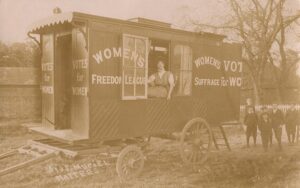
Dare to be free. Slogan of the Women’s Freedom League The Women’s Freedom League (WFL) was a militant suffrage organisation, […]
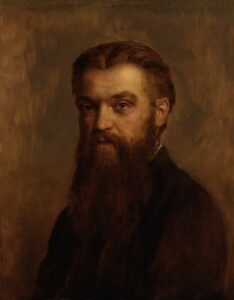
Our interest, it seems to me, lies with so much of the past as may serve to guide our actions […]
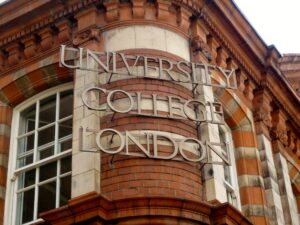
University College London was founded in 1826 as the University of London; the city’s first university, and a consciously secular […]
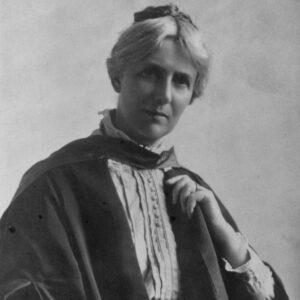
Millicent Mackenzie was a pioneering educationist and suffragist, who – alongside her husband, John Stuart Mackenzie – gave significant support […]